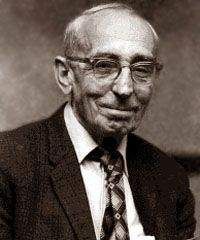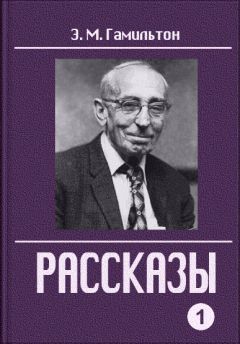Пользователь - o 3b3e7475144cf77c
III
Somewhat of an adventure for Beauty Budd. Six years had passed since Kurt had departed from
Bienvenu and had failed to return. He had found himself a wife, and she a husband, and now
they would meet as old friends, glad to see each other, but with carefully measured cordiality; their
memories would be like Marcel's paintings hanging on the walls—but not for public showing.
Parsifal Dingle was here, and he had heard much talk about the wonderful German composer
who had lived for so long with the Budds. He hadn't been told that Kurt had been Beauty's
lover for eight years, but he couldn't very well have failed to guess. He never asked questions, that
being contrary to his philosophy. A wise and discreet gentleman with graying hair, he had found
himself an exceptionally comfortable nest and fitted himself into it carefully, taking up no more
than his proper share of room. He cultivated his own soul, enjoyed the process, and asked nothing
more of life. If a German musician who had read Hegel, Fichte, and others of his country's
philosophers wished to ask questions about the inner life, Parsifal would be glad to answer;
otherwise he would listen to Kurt play the piano in their suite and give his own meanings to the
music.
Friendship to Lanny Budd had always been one of life's precious gifts. Now he was happy to
be with Kurt and Heinrich again; yet he was torn in half, because he wasn't really with them,
he was lying to them. How strange to be using affection as a camouflage; feeling sympathy and
oneness, yet not really feeling it, working against it all the time! Lanny's friendship was for
Freddi, and Freddi and these two were enemies. With a strange sort of split personality, Lanny
loved all three; his friendship for Kurt and Heinrich was still a living thing, and in his feelings
he went back to the old days in Stubendorf, twelve years ago, when he had first met the
Oberforster's son. To be sure, Heinrich had been a Nazi even then, but Lanny hadn't realized
what a Nazi was, nor for that matter had Heinrich realized it. It had been a vision of German
progress, a spiritual thing, constructive and not destructive, a gain for the German Volk
without any loss for Jews or Socialists or democrats or pacifists—all those whom the Nazis now had
in their places of torture.
The three talked about old times and were at one. They talked about Kurt's music, and were
still at one. But then Heinrich fell to talking about his work, and recent developments in party
and national affairs, and at once Lanny had to start lying. It wasn't enough just to keep still, as he
had done earlier; no, when the young party official went into ecstasies over that marvelous
electoral victory, Lanny had to echo: "Herrlich!" When Kurt declared that the Führer's stand
for peace and equality among the nations was a great act of statesmanship, Lanny had to say: "Es
hat was heroisches" And all the time in his soul he wondered: "Which of us is crazy?"
No easy matter to stick to the conviction that your point of view is right and that all the
people about you are wrong. That is the way not merely with pioneers of thought, with heroes,
saints, and martyrs, but also with lunatics and "nuts," of whom there are millions in the world.
When one of these "nuts" succeeds in persuading the greater part of a great nation that he is
right, the five per cent have to stop and ask themselves: "How come?" Particularly is this true
of one like Lanny Budd, who was no pioneer, hero, or saint, and surely didn't want to be a
martyr. All he wanted was that his friends shouldn't quarrel and make it necessary for him to
choose between them. Kurt and Rick had been quarreling since July 1914, and Lanny had been
trying to make peace. Never had he seemed less successful than now, while trying to act as a
secret agent for Rick, Freddi, and General Göring all at the same time!
They talked over the problem of approaching the Chancellor of Germany, and agreed that Kurt
was the one to do it, he being the elder, and the only one with a claim to greatness. Kurt called
the Führer's secretary at the Braune Haus, and said that he wished not merely to play the piano
for his beloved leader, but to bring the Führer's old friend, Heinrich Jung, and the young
American, Lanny Budd, who had visited the Führer in Berlin several years ago. Lanny would bring
a sample of the paintings of Marcel Detaze, who was then having a one-man exhibition and
had been highly praised in the press. The secretary promised to put the matter before the
Chancellor in person, and the Komponist stated where he could be reached. Needless to say, it
added to his importance that he was staying at the most fashionable of Munich's hotels, with
its fancy name, "The Four Seasons."
IV
Irma invited Kurt into her boudoir for a private chat. She was in a conspiracy with him against
her husband—for her husband's own good, of course; and Kurt, who had had professional training
in intrigue, was amused by this situation. A sensible young wife, and it might be the saving of
Lanny if he could be persuaded to follow her advice. Irma explained that Lanny had been
behaving rationally on this trip, and was doing very well with his picture business, which seemed
to interest him more than anything else; but he still had Freddi on his conscience, and was
convinced that Freddi was innocent of any offense. "I can't get him to talk about it," said Irma,
"but I think somebody has told him that Freddi is a prisoner in a concentration camp. It has
become a sort of obsession with him."
"He is loyal to his friends," said the Komponist, "and that's a fine quality. He has, of course, no
real understanding of what the Jews have done to Germany, the corrupting influence they
have been in our national life."
"What I'm afraid of," explained Irma, "is that he might be tempted to bring up the subject to
the Führer. Do you think that would be bad?"
"It might be very unfortunate for me. If the Führer thought that I had brought Lanny for that
purpose, it might make it impossible for me ever to see him again."
"That's what I feared; and perhaps it would be wise if you talked to Lanny about it and
warned him not to do it. Of course don't tell him that I spoke to you on the subject."
"Naturally not. You may always rely on my discretion. It will be easy for me to bring up the
subject, because Lanny spoke to me about Freddi in Stubendorf."
So it came about that Lanny had a talk with Kurt without being under the necessity of
starting it and having Kurt think that that was why he had been invited to Munich. Lanny
assured his old friend that he had no idea of approaching the Führer about the matter; he
realized that it would be a grave breach of propriety. But Lanny couldn't help being worried
about his Jewish friend, and Kurt ought to be worried too, having played so many duets with
him and knowing what a fine and sensitive musician he was. Lanny said: "I have met one of
Freddi's old associates, and I know that he is under arrest. I could never respect myself if I
didn't try to do something to aid him."
Thus the two resumed their old intimacy; Kurt, one year or so the elder, still acting as
mentor, and Lanny, the humble and diffident, taking the role of pupil. Kurt explained the
depraved and antisocial nature of Juda, and Lanny let himself be convinced. Kurt explained the
basic fallacies of Social-Democracy, one of the Jewish perversions of thought, and how it had let
itself be used as a front for Bolshevism—even when, as in the case of Freddi, its devotees were
ignorant of what base purposes they were serving. Lanny listened attentively, and became more
and more acquiescent, and Kurt became correspondingly affectionate in his mood. At the end of
the conversation Kurt promised that if they had the good fortune to be received by the Führer,
he would study the great man's moods, and if it could be done without giving offense, he
would bring up the subject of Lanny's near-relative and ask the Führer to do the favor of
ordering his release, upon Lanny's promise to take him out of Germany andsee to it that he
didn't write or speak against the Fatherland.
"But don't you bring up the subject," warned Kurt. Lanny promised solemnly that he
wouldn't dream of committing such a breach of propriety.
V
They waited in the hotel until the message came. The Führer would be pleased to see them at
the Braune Haus next morning; and be sure they would be on hand!
It proved to be one of those early winter days when the sun is bright and the air intoxicating,
and they would have liked to walk to the appointment; but they were taking the picture,
Sister of Mercy, so Lanny would drive them. Heinrich, who had learned as a youth to labor
with his hands, offered to carry the burden into the Braune Haus, but Beauty insisted that
things had to be done with propriety, by a uniformed attendant from the hotel. She her self
called up the management to arrange matters, and they fell over themselves to oblige. No charge,
Frau Budd, and a separate car if you wish—what hotel in all Germany would not be honored to
transport a picture to the Führer? The word spread like wildfire through the establishment, and
the three young men were the cynosure of all eyes. The Führer, they learned, had been a
familiar figure in this fashionable hotel; for many years he had been entertained here by two of his
wealthy supporters, one of them a piano manufacturer and the other a Prussian Graf whose wife
was conspicuous because of her extreme friendliness with the bellhops. Irma knew all about
this, for the reason that she was practicing her German on one of the women employees of the
establishment. One would never lack for gossip in a grand hotel of Europe!
The Braune Haus is on the Briennerstrasse, celebrated as one of the most beautiful streets in
Germany; a neighborhood reserved for millionaires, princes, and great dignitaries of state
and church. In fact, the palace of the Papal Nuncio was directly across the street, and so the
representatives of the two rival faiths of Munich could keep watch upon each other from their
windows. The princely delegate of the lowly Jewish carpenter looked across to a square-fronted
three-story building set far back from the street and protected by high fences; on top of it a
large swastika flag waved in the breeze which blew from the snow-clad Alps; in front of its
handsome doorway stood day and night two armed Stormtroopers. If the Catholic prelate
happened to be on watch that morning he saw a luxurious Mercedes car stop in front of the Nazi
building and from it descend a blond and blue-eyed young Nazi official in uniform, a tall
Prussian ex-artillery captain with a long and somewhat severe face, and a fashionably attired
young American with brown hair and closely trimmed mustache; also a hotel attendant in a
gray uniform with brass buttons, carrying a large framed picture wrapped in a cloth.
These four strode up the walk, and all but the burden-bearer gave the Nazi salute. Heinrich's
uniform carried authority, and they came into an entrance hall with swastikas, large and small,
on the ceiling, the windows, the doorknobs, the lamp-brackets, the grillework. They were a little
ahead of time, so Heinrich led them up the imposing stairway and showed them the
Senatorensaal, with memorial tablets for the Nazi martyrs outside the doors. Inside were forty
standards having bronze eagles, and handsome red leather armchairs for the "senators," whoever
they were—they couldn't have met very often, for the Führer gave all the orders. "Prachtvoll!"
was the comment of Heinrich and Kurt. Lanny had the traitor thought: "This came out of the
deal with Thyssen and the other steel kings!"
The offices of Hitler and his staff were on the same floor, and promptly at the appointed hour
they were ushered into the simply decorated study of the head Nazi. They gave the salute, and
he rose and greeted them cordially. He remembered Lanny and shook hands with him.
"Willkommen, Herr Budd. How long has it been since we met—more than three years? How time
does fly! I don't have a chance to notice it, to say nothing of enjoying it."
Once more Lanny felt that soft moist hand, once more he looked into those gray-blue eyes set
in a pale, pasty face, rather pudgy now. for Adi was gaining weight, in spite of or possibly
because of his gall-bladder trouble. Looking at him, Lanny thought once more that here was
the world's greatest mystery. You might have searched all Europe and not found a more
commonplace-appearing man; this Führer of the Fatherland had everything it took to make
mediocrity. He was smaller than any of his three guests, and as he was now in a plain business
suit with a white collar and black tie, he might have been a grocery assistant or traveling
salesman for a hair tonic. He took no exercise, and his figure was soft, his shoulders narrow and
hips wide like a woman's. The exponent of Aryan purity was a mongrel if ever there was one; he
had straight thick dark hair and wore one lock of it long, as Lanny had done when a boy.
Apparently the only thing he tended carefully was that absurd little Charlie Chaplin mustache.
Watching him in his Berlin apartment, Lanny had thought: "It is a dream, and the German
people will wake up from it." But now they were more deeply bemused than ever, and Lanny,
trying to solve the riddle, decided that here was the Kleinbürgertum incarnate, the average
German, the little man, the "man in the street." Thwarted and suppressed, millions of such men
found their image in Adi Schicklgruber, understood him and believed his promises. The ways in
which he differed from them—as in not eating meat and not getting drunk when he could—these
made him romantic and inspiring, a great soul.
VI
The hotel attendant was standing in the doorway, with the picture resting on the floor; he
steadied it with his left hand while keeping his right arm and hand extended outward and
upward in a permanent salute. The Führer noticed him and asked: "What is this you have brought




